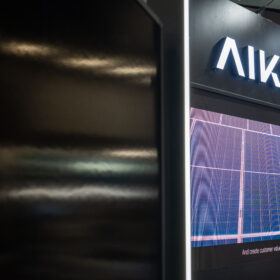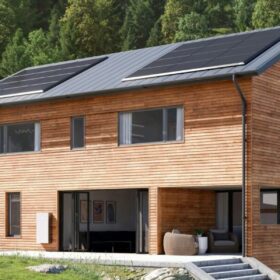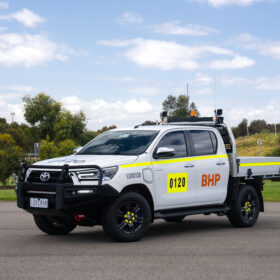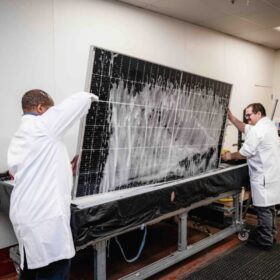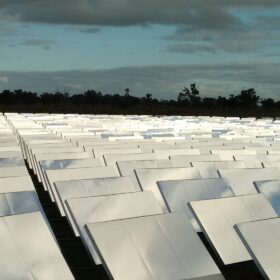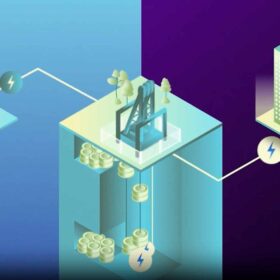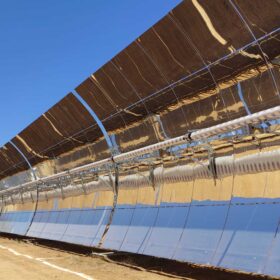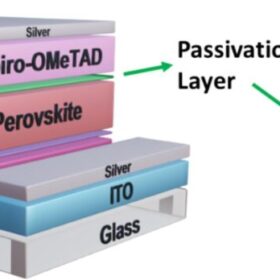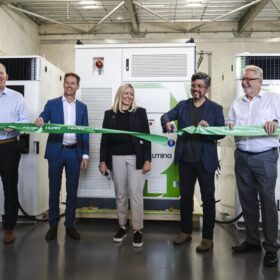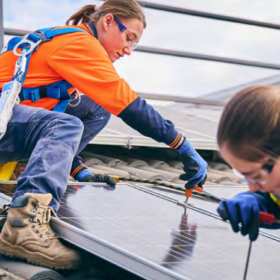Aiko teams with Australian research centre to push solar cell efficiency limits
Chinese solar cell and module maker Aiko Solar has partnered with the Australian Centre for Advanced Photovoltaics on a $6 million initiative aiming to achieve 30% efficiency with interdigitated back contact silicon solar cells.
Tesla releases Powerwall 3 expansion units for more capacity at lower price
Each expansion unit adds another 13.5 kWh of storage capacity to the original installation with a maximum of three such units connected to a single Powerwall. Now available in the United States, the new product comes at a lower cost and slashes installation time by roughly half to 22 minutes.
Toyota teams with BHP to test electric HiLux dual-cab
With electric vehicle demand continuing to grow in Australia, Japanese auto manufacturer Toyota has revealed it will team with mining giant BHP to trial the “first ever” battery-powered HiLux dual-cab ute.
PVEL scorecard shows ‘relevant risks’ for TOPCon technology
The results of this year’s Kiwa PVEL scorecard have shown that TOPCon technology is more vulnerable than PERC, and the failure rate at bill of materials has increased to 41%, the highest in history, according to the testing lab.
Vast signs 550 MWh USA-based green methanol and sustainable fuels deal
Australian concentrated solar company Vast Renewables has signed a development services agreement with Singapore-headquartered energy company GGS Energy to bring concentrated solar powered green methanol and sustainable aviation fuel to the USA.
Mount Isa copper mines earmarked for gravitational energy storage system
New South Wales-based gravitational energy storage technology company Green Gravity will repurpose shafts in two Queensland copper mines scheduled to close in 2025, to store renewable energy.
Flexible printed solar film research tacks closer to commercial viability
Researchers at the CSIRO have taken their pilot-scale prodcution of flexible printed solar film to a new level, following the official launch of its Printed Photovoltaic Facility in southwest Melbourne, Victoria.
Mars plans concentrated solar thermal tech for Victorian plant
The federal government will tip more than $17 million into what it said will be Australia’s first commercial concentrated solar thermal heat plant, expanding the application of solar power beyond electricity to heat generation.
New passivation strategy increases efficiency of chloride-iodide-based perovskite solar cells by 15%
Although local defects in chloride-iodide-based perovskite are hard to avoid due to ion migration, a group of scientists from the University of New South Wales has found a way to passivate them. They used different combinations of 4-chlorobenzylammonium chloride and 4-chlorobenzylammonium bromide on top of the hole transport layer and reached up to 15% improvement in efficiency.
Battery start-up opens ‘Australian first’ factory on Gold Coast
Elumina has officially opened a manufacturing and development centre in Queensland’s southeast that it says will be the first in Australia capable of producing both community-scale lithium batteries and electric vehicle chargers.
